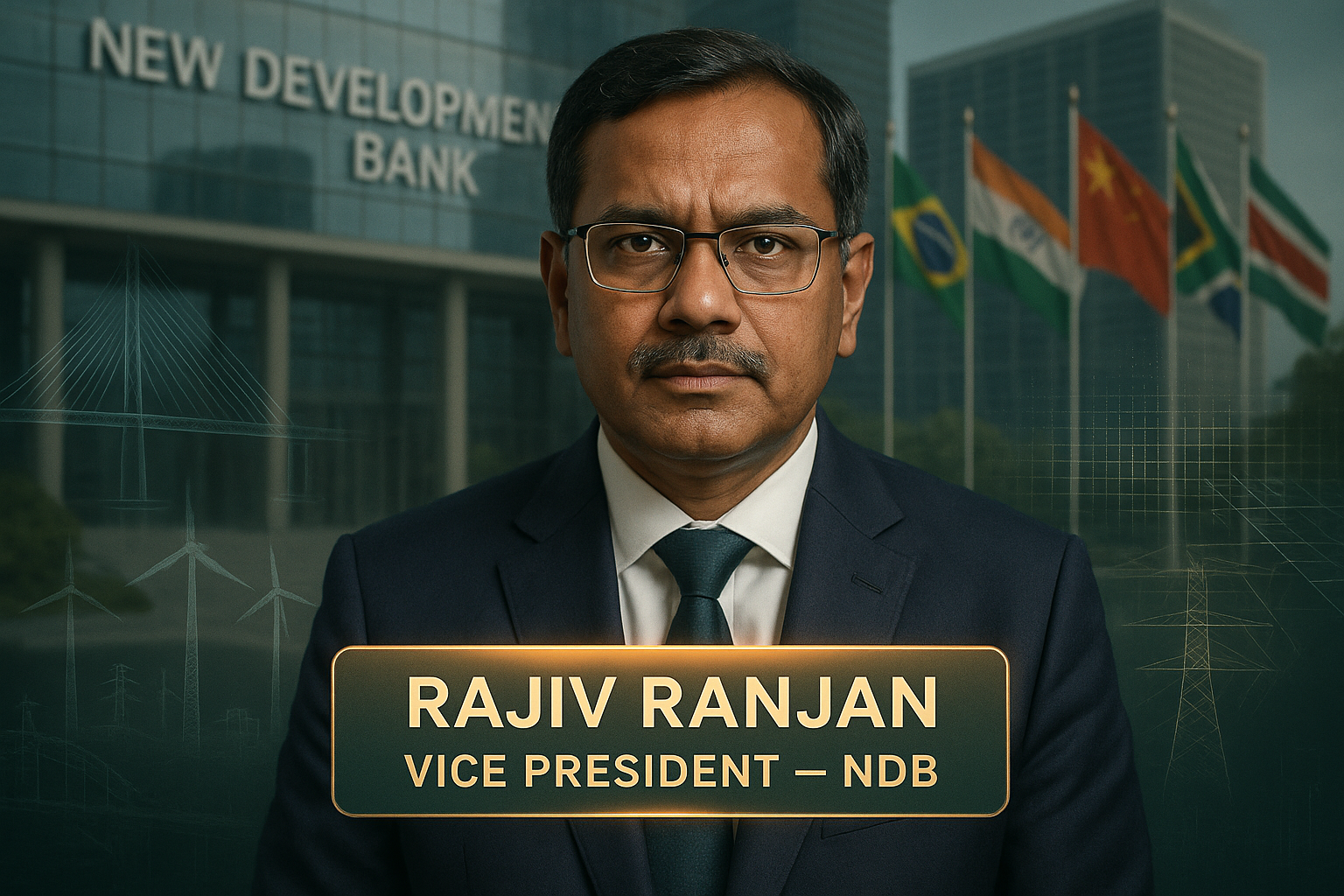Rajiv Ranjan, former member of the Reserve Bank of India’s Monetary Policy Committee (MPC), has been appointed as Vice President of the New Development Bank (NDB). His appointment strengthens India’s representation in the multilateral development institution and reflects confidence in his deep expertise in monetary policy, macroeconomics, and financial markets.
The move underscores India’s growing role in shaping global financial institutions and development financing frameworks at a time when emerging economies seek a stronger voice in global governance.
Rajiv Ranjan’s Background
Ranjan served as an external member of the RBI’s Monetary Policy Committee, where he contributed to critical decisions on interest rates, inflation management, and macroeconomic stability. Known for his nuanced understanding of India’s economic challenges, his insights helped guide policy through a period of global uncertainty and domestic structural shifts.
Before his MPC role, he held several senior positions within the RBI, giving him deep institutional knowledge of monetary policy, regulation, and financial systems.
The New Development Bank’s Role
The NDB, established by the BRICS nations, finances infrastructure and sustainable development projects in emerging economies. With a growing project portfolio across sectors such as transport, renewable energy, and digital infrastructure, the bank is becoming a critical partner for developing nations seeking affordable capital.
By appointing Ranjan, the NDB adds to its leadership bench strength at a time when demand for financing in climate, infrastructure, and social sectors is accelerating.
Why This Appointment Matters
Ranjan’s appointment carries significance beyond his personal career.
For India: Enhances India’s influence within BRICS-led financial institutions.
For the NDB: Adds expertise in balancing growth with stability, critical for financing projects in volatile economies.
For Global Policy: Signals the increasing role of emerging market economists in shaping multilateral decision-making.
It also reflects India’s push to secure greater leadership positions in global financial institutions, complementing its growing economic weight.
Why This Matters for India’s Policy Landscape
Ranjan’s elevation showcases how India’s policy thinkers are transitioning from domestic roles to global platforms. This not only boosts India’s intellectual contribution to international finance but also provides a channel for influencing reforms in development banking practices worldwide.
Such appointments strengthen India’s case for greater participation in other multilateral institutions like the IMF and World Bank, where emerging economies continue to push for larger representation.












